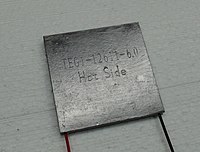
Achyranthes bidentata polypeptide k improves long-term neurological outcomes through reducing downstream microvascular thrombosis in experimental ischemic stroke
Sign Up to like & getrecommendations! Published in 2019 at "Brain Research"
DOI: 10.1016/j.brainres.2018.11.010
Abstract: Achyranthes bidentata Bl. (A. bidentata) occupies an important position in traditional Chinese medicine owing to the property of promoting the circulation of blood and removing stasis. Achyranthes bidentata polypeptide k (ABPPk) is one of the… read more here.
Keywords: ischemic stroke; term; long term; achyranthes bidentata ... See more keywords

Penetrating Internal and Common Carotid Artery Injuries Shunts versus no shunts during repair effect on neurological outcomes.
Sign Up to like & getrecommendations! Published in 2020 at "Injury"
DOI: 10.1016/j.injury.2020.11.032
Abstract: BACKGROUND Penetrating Carotid artery injuries are rarely encountered even in busy in urban Trauma Centers. Repair is preferred over ligation for Internal (IC) and Common Carotid (CC) arteries. To date, the use of temporary shunts… read more here.
Keywords: carotid artery; internal common; artery injuries; neurological outcomes ... See more keywords

Targeted temperature management and emergent coronary angiography are associated with improved outcomes in patients with prehospital return of spontaneous circulation.
Sign Up to like & getrecommendations! Published in 2020 at "Journal of the Formosan Medical Association = Taiwan yi zhi"
DOI: 10.1016/j.jfma.2020.03.017
Abstract: BACKGROUND/PURPOSE Whether targeted temperature management (TTM) and emergent coronary angiography (CAG) remain associated with better outcomes in patients with prehospital return of spontaneous circulation (ROSC) was unknown. METHODS This retrospective cohort study enrolled 81 adult,… read more here.
Keywords: emergent; cag; group; neurological outcomes ... See more keywords

Optic nerve sheath diameter measured using early unenhanced brain computed tomography shows no correlation with neurological outcomes in patients undergoing targeted temperature management after cardiac arrest.
Sign Up to like & getrecommendations! Published in 2018 at "Resuscitation"
DOI: 10.1016/j.resuscitation.2018.04.041
Abstract: AIM Previous studies indicated that the optic nerve sheath diameter (ONSD) measured using brain computed tomography (CT) is a prognostic factor for poor neurological outcome after cardiac arrest. However, these studies were retrospective or included… read more here.
Keywords: measured using; optic nerve; neurological outcomes; cardiac arrest ... See more keywords

Initial red cell distribution width as a predictor of poor neurological outcomes in out-of-hospital cardiac arrest survivors in a prospective, multicenter observational study (the KoCARC study)
Sign Up to like & getrecommendations! Published in 2020 at "Scientific Reports"
DOI: 10.1038/s41598-020-74842-y
Abstract: This study aimed to investigate whether the initial red cell distribution width (RDW) at the emergency department (ED) is associated with poor neurological outcomes in out-of-hospital cardiac arrest (OHCA) survivors. We performed a prospective observational… read more here.
Keywords: associated poor; poor neurological; study; neurological outcomes ... See more keywords

Combination of neuron-specific enolase measurement and initial neurological examination for the prediction of neurological outcomes after cardiac arrest
Sign Up to like & getrecommendations! Published in 2021 at "Scientific Reports"
DOI: 10.1038/s41598-021-94555-0
Abstract: This study aimed to investigate the efficacy of the combination of neuron-specific enolase (NSE) measurement and initial neurological examination in predicting the neurological outcomes of patients with cardiac arrest (CA) by retrospectively analyzing data from… read more here.
Keywords: initial neurological; combination; neurological outcomes; measurement initial ... See more keywords

Association between Conversion to Shockable Rhythms and Survival with Favorable Neurological Outcomes for Out-of-Hospital Cardiac Arrests.
Sign Up to like & getrecommendations! Published in 2023 at "Prehospital emergency care"
DOI: 10.1080/10903127.2023.2212039
Abstract: BackgroundThe initial cardiac rhythm in out-of-hospital cardiac arrest (OHCA) portends different prognoses and affects treatment decisions. Initial shockable rhythms are associated with good survival and neurological outcomes but there is conflicting evidence for those who… read more here.
Keywords: rhythms; survival; neurological outcomes; conversion ... See more keywords

P5349Platelet/lymphocyte ratio as an inflammatory marker and predictor of short-term neurological outcomes in survivors after cardiac arrest
Sign Up to like & getrecommendations! Published in 2019 at "European Heart Journal"
DOI: 10.1093/eurheartj/ehz746.0316
Abstract: Platelet/lymphocyte ratio (PLR), an inflammatory marker associated with poor outcomes in different clinical situations, may play a role in the proinflammatory state triggered during hypoxic-ischemic brain injury secondary to cardiac arrest. To study PLR dynamics… read more here.
Keywords: outcomes survivors; neurological outcomes; cardiac arrest; lymphocyte ratio ... See more keywords

Factors Associated With Worsened Neurological Outcomes in Traumatic Subarachnoid Hemorrhage
Sign Up to like & getrecommendations! Published in 2019 at "Neurosurgery"
DOI: 10.1093/neuros/nyz310_685
Abstract: Patients are often admitted for observation due to isolated traumatic subarachnoid hemorrhage (tSAH). However, factors that are associated with worsening neurological outcomes are unclear. Patients who presented with tSAH from January 2017 to May 2017… read more here.
Keywords: risk factors; decline; traumatic subarachnoid; worsened neurological ... See more keywords

1528: BLOOD GLUCOSE ON ADMISSION IN OHCA PATIENTS RECEIVING ECPR
Sign Up to like & getrecommendations! Published in 2020 at "Critical Care Medicine"
DOI: 10.1097/01.ccm.0000648020.55465.b0
Abstract: Introduction/Hypothesis: Several factors such as initial electrocardiography shockable rhythm, short low-flow time, young age, and cardiogenic etiology have been reported to be associated with favorable neurological outcomes in out-of-hospital cardiac arrest (OHCA) patients receiving extracorporeal… read more here.
Keywords: admission; neurological outcomes; blood; blood glucose ... See more keywords

Relationship between cooling time and neurological outcomes in targeted temperature management
Sign Up to like & getrecommendations! Published in 2022 at "Academic Emergency Medicine"
DOI: 10.1111/acem.14440
Abstract: The relationship between cooling time (CT) variables and neurological outcomes is controversial. We evaluated the relationship between CT and neurological outcomes in out‐of‐hospital cardiac arrest (OHCA) patients treated with targeted temperature management (TTM). read more here.
Keywords: relationship; temperature management; cooling time; targeted temperature ... See more keywords